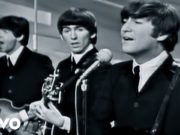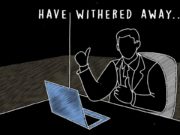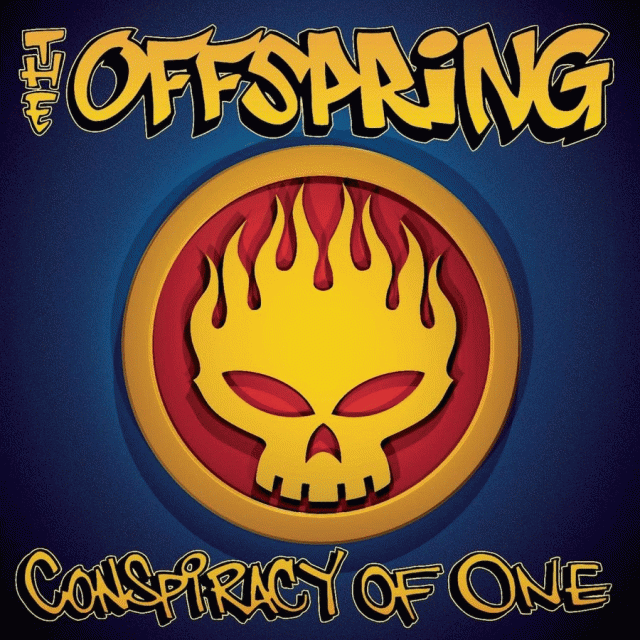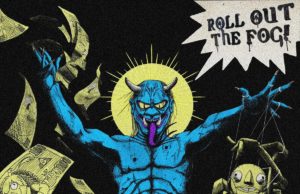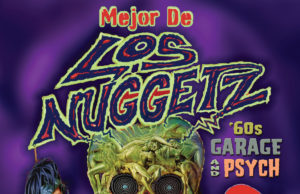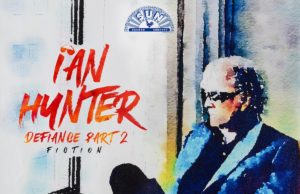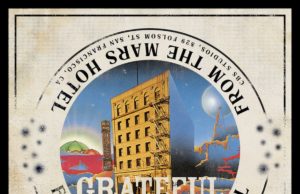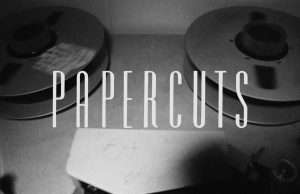Two decades ago, new albums from Marilyn Manson, The Offspring, Everclear and others were spinning away in my portable CD player. Here’s what I had to say about them back then (with some minor editing):
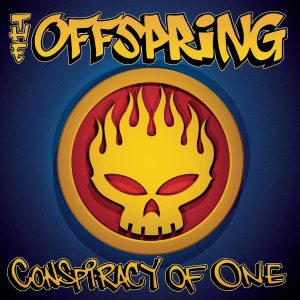 The Offspring
The Offspring
Conspiracy of One
Commercial success is like Raid to a punk band’s credibility and creativity — it kills ’em dead. Pick almost any name you like: The Clash, X, Green Day, Bad Religion, whoever. They all were great in the beginning. Then they scored a major-label record deal, or a hit single, or a breakthrough album, and voom, faster than you can say seven-digit royalty cheque, they turned into risk-free, safe, pop-chart versions of their former selves. (Two exceptions that prove the rule: Nirvana, who survived by refusing to fully embrace their fame, and The Ramones, who survived by failing to have any song that could truly be construed a radio hit.) After a while, some bands wake up and some break up. But most just settle comfortably into the rock-star rut and start churning out soundalike albums, each a slightly more faded Xerox of the last.
The latest confirmed casualty of terminal rock-star syndrome is The Offspring. To be fair, they’ve had a chronic case for some time — ever since 1994, to be exact, when their third album Smash lived up to its name thanks to the rebelliously goofy left-field hit Come Out and Play (Keep ’Em Separated), anchored by a dozen or so tracks of decently written skate-punk. Hey, I loved it too. Thing is, ever since they hit upon the recipe to their brand of hit-single sauce — one part punky pop-metal, a twangy guitar lick, a freaky Hispanic vocal sample and a dash of funky groove — they’ve been dishing it out like Big Macs. And like Mickey D’s, they’ve figured out how to turn that franchise into a global enterprise.
The secret? Consistency. The Offspring’s sixth album Conspiracy of One is one of the most commercial and slick albums ever issued by a so-called punk band. Every hook, rhythm and riff that went into these dozen songs is grade-A, FM-radio-ready fodder. Every track comes straight outta their own self-penned rule book. First and foremost of course, you’ve got the wacky single Original Prankster, with its surf guitar, unforgettable chorus and barrio backbeats. Then you’ve got the stock elements that go into the rest of the familiar-sounding tracks — your ringing punk guitars, your pogoing hardcore beats, your kooky sounds, your soaring, melodic vocals, your tales of teenage alienation and angst expertly penned by thirtysomething grad students. No real rough edges, no controversial stances, no political statements, nothing to upset the young consumers or their parents. Conspiracy of One is so inoffensive and wholesome it could come with a Happy Meal. And do you want fries with that?
Yet, for all my hypercritical niggling and kvetching, I can’t help but listen to the thing. Much like Big Macs, Bruce Willis movies or TV shows like Friends, The Offspring have become a comforting pop-culture staple we all know intimately. Formulaic or not, after you hear Original Prankster once, you’ll know it by heart and be singing it the rest of the day. By my definition, that’s the mark of a great pop single. The same goes for the hypercharged chorus of Come Out Swinging, the oh-whoa-oh hook of Million Miles Away, the Hooked On a Feeling “Ooga-chucka, ooga-chucka” samples stuck into Special Delivery, the metallic hip-hop refrain of Living in Chaos — they’ll all be stuck in your memory as firmly as this disc is lodged in your CD player.
Creative? Not really. Credible? Not with any punks you know. But damned if it isn’t going to make a bazillion dollars and be on the top of every teenager’s holiday wish list. Pretty sly for white guys.
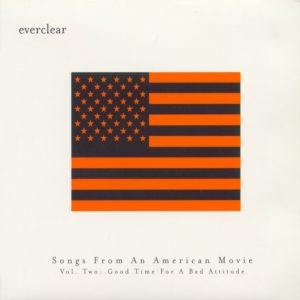 Everclear
Everclear
Songs From an American Movie, Vol. Two: Good Time For a Bad Attitude
Movie sequels usually suck. From Jaws to Jurassic Park, Halloween to Blair Witch Project, the first part of any story is almost always the best.
Trust Everclear leader Art Alexakis to buck the trend. Good Time For a Bad Attitude, the second chapter in his Songs From an American Movie set, is that rarest of followups — a sequel that’s not only comparable in quality to the original, but actually pulls the whole affair together and wraps it up tidily.
Of course, Everclear’s American Movie series has a lot more continuity going for it than most real American franchises. The Portland band reportedly recorded both discs at the same time, then decided to divide based on their mood. The ambitious Vol. One: Learning How to Smile, released early in July, was the pop side of the coin. Pretty much every one of its dozen heartfelt tracks was a chapter in a romance novel, from infatuation and commitment to bliss and disillusionment, and on to picking up the pieces and (you guessed it) learning how to smile. Each was also its own mini-movie, complete with dialogue, sound effects, swelling strings, stirring orchestrations and production up the wazoo.
Bad Attitude, not surprisingly, is the flip side of that coin — the snarling, aggressive, brooding yang to the first album’s romantic, optimistic yin. Oh, it’s still about love, all right. But not as seen through the rose-coloured glasses of infatuation. Here, Alexakis and co. view it from the other end, through the jaundiced eye of the rageaholic guy who’s been jilted again. Whatever smile Art had on his face back then, it’s been wiped clean off here, replaced by white-hot anger. Some is aimed at himself — “I know it’s wrong but I just can’t seem to act my age / I know it’s wrong but I just can’t seem to control my rage,” he admits on the churning post-grunger Slide, confessing his sins like a guy on the ropes begging for one last chance he knows he isn’t going to get. And after he’s dumped but good, like any jilted guy, Art’s got more than enough loathing to spread it around. “My weird little brother and his ex-girlfriend, they would talk in those ridiculous voices,” he sneeringly complains in Babytalk. “They both would make those ridiculous noises … It’s obvious she’s got him by the balls.”
From there, Bad Attitude’s themes will ring true with anybody who’s ever spent time in Dumpville, Pop. 1. There’s the I’ll-show-her daydream of Rockstar (“I want a girlfriend that doesn’t drink beer … I wanna tell all the little people they can kiss my ass”), the depressing acceptance of reality on Short Blonde Hair (“All I ever wanted to do was play guitar in a rock ’n’ roll band / Now I’m just losing my hair and learning how to smile like I just don’t care”), and the downward spiral into dysfunctional relationships (“I feel complete when I feel sick inside,” he confides in the co-depenence tale Misery Whip), loss of control and self-loathing (Out of My Depth, whose title pretty much speaks for itself).
Along the way, Alexakis’s music matches his black mood. Bad Attitude is jammed with Art’s trademark choppy grunge guitar riffs and propulsive, insistent drumbeats that get harder and angrier as his character does, until it climaxes in All F—ed Up, a cathartic scream of frustration and desperation braced by a wall of crash ’n’ bash drums and frenzied punk guitar. It’s here that Art hits bottom and begins to climb back to reality, telling his ex “I’m not going to let you overwhelm me anymore” on Overwhelming. And re-learning that his daughter’s smile is his most important possession on Song From an American Movie, the reworked version of the first album’s opening track which brings the whole tale full circle.
Not a bad tale, especially when you consider he crams it all into 45 fast-paced minutes. And the fact that even a full-price CD is cheaper than a night at the movies. Two thumbs up.
 Marilyn Manson
Marilyn Manson
Holy Wood (in the Shadow of the Valley of Death)
On his first three albums, Marilyn Manson evolved from a low-rent shock rocker to a post-industrial Anti-Christ Superstar and then into a space-alien glam rocker. Now, however, he’s turned into something we never expected him to become — a bore. For months, Manson has been advertising his fourth album Holy Wood as his darkest, angriest work yet. Not even close. Musically, this 19-track affair splits the difference between his last two discs, combining the post-glam decadence of Mechanical Animals with Anti-Christ’s pummelling grind. Lyrically, it’s supposedly the tale of a naive boy who becomes a star in an evil world and starts a revolution to save it, only to see his efforts exploited and sold. Sounds promising, doesn’t it? Too bad that really it’s just more of Manson’s usual mish-mash of God, guns, government, drugs, murder, death and sex. It has its moments — Disposable Teens has the same creepy lurch as Beautiful People, while Lamb of God references both John Lennon’s murder and The Beatles’ Across the Universe. But Holy Wood is a long way from the White Album Manson claimed it would be. Hell, it isn’t even his Black Album. And let’s face it, grey doesn’t go with Marilyn’s complexion.
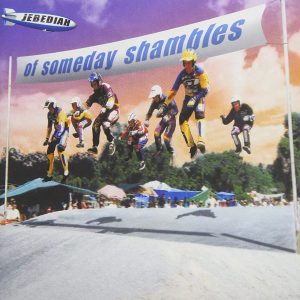 Jebediah
Jebediah
Of Someday Shambles
The Olympic closing ceremonies were pretty much a catalogue of Down Under cheese-pop — Men at Work, INXS, Midnight Oil, Kylie Minogue. Too bad they didn’t make room for a few rockier acts like, say, Silverchair — or their former labelmates Jebediah. Named after the founding father of The Simpsons’ home town, this Perth quartet packs a somewhat similar post-grunge punch thanks to their penchant for two-chord distorto-guitar riffs and singer Kevin Mitchell’s fidgety, strained voice. However, their debut North American release Of Someday Shambles portrays them as something more than just another bunch of Nirvanabes. Congratulations has all the hooky pop crunch of Cheap Trick, while Trap Door revels in the giddy, fuzzed-out abandon of classic Pixies. Toss in some Pavementish guitar-slack and Sloanish power-pop and you’ve got the makings of a gold-medal performance.
 Silkworm
Silkworm
Lifestyle
By rights, these Seattle-via-Montana post-punks should have been on a downhill slide since 1994, when co-founder Joel R. L. Phelps left for a solo career. Instead, they’ve evolved into perhaps one of the most vital and consistent indie-rock bands on a slowly diminishing scene. Combining the unkempt guitar slack of Pavement with the no-frills punk romanticism of Sebadoh and Paul Westerberg, Silkworm’s remaining trio manage on this eighth full-length to create an album that is both hooky and uncommercial, understated and overwhelming, loose-limbed and intense, thoughtful yet restrained. Even their rockiest tunes ring with melancholy, while their slowest dirges cling to an undercurrent of optimism. Plus their piano player gives the whole affair an Exile on Main St. vibe — AND they convert The Faces’ Ooh La La into a spare, wobbly gem that stumbles toward perfection. Just as Silkworm continue to do.
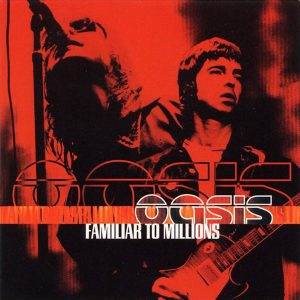 Oasis
Oasis
Familiar to Millions
Looking for a new party pastime? Try the Oasis Drinking Game — just toss their new two-CD live album Familiar to Millions into the CD changer, hit shuffle and take a swig every time one of the Gallagher brothers says “fooken.” You’ll be legless before you’ve heard half these 18 tracks. Which would actually be a pity, since Millions — taped in Wembley before 70,000 rabid fans over two nights in June — is a pretty stellar live set, especially from the notoriously inconsistent Oasis. In fact, it’s hard to tell which proves more impressive: the undeniable power and stadium-rock magnificence of anthemic singalongs like Supersonic, Acquiesce and Wonderwall; the worthwhile covers of Hey Hey, My My and Helter Skelter; or that eternally squabbling siblings Liam and Noel manage to get through the set without taking a poke at each other or quitting the band. Either way, it’s pretty fooken grand. And I’ll drink to that.
 Medeski, Martin and Wood
Medeski, Martin and Wood
The Dropper
“We are rolling,” announces a voice at the opening of Medeski, Martin and Wood’s The Dropper. He ain’t kidding. After taking a stripped-down, back-to-basics approach on this spring’s live album Tonic, this downtown New York jazz-funk trio return to the gritty, organ-fuelled hip-hop configuration of their breakthrough Combustication album. And then they crank it up about 10 notches and blast it straight to Venus. Billy Martin’s scattergun funky-drummer syncopation, Chris Woods’ fuzzed-out basslines and John Medeski’s Jimmy Smith-on-acid organ weirdness intertwine to drive 13 boisterous grooves that space out like Sun Ra — when they aren’t jiving like James Brown. Toss in some urban-jungle samples, secret-agent guitars from Mark Ribot, warts-and-all basement-level underproduction and anything-goes knob-twiddling and you’ve got an audacious, adventurous and infectious funk-jazz-hip-hop-rock-soul hybrid that just might restore some dignity to the dreaded f-word — fusion.
 Alabama 3
Alabama 3
La Peste
You might not know Alabama 3 by name, but you definitely know one of their tunes — Woke Up This Morning, aka the theme from The Sopranos. Well, you won’t find it on their new disc; that tune comes from their 1997 debut Exile on Coldharbour Lane. But you will find plenty of loping, ominous tracks just like it. La Peste essentially picks up where Exile left off, with the duo of Rob Spragg (aka Larry Love) and Jake Black (aka D. Wayne Love) indulging in their shared passion for country music, American icons and Bible belt gospel, deconstructed and reassembled into seductively sinister trip-hop. This time, they add a few new touches to their patented Leonard Cohen-in-the-chillout-room formula — nods to both Hank Williams (Mansion on the Hill) and Bob Dylan (Sad Eyed Lady of the Lowlife), strummy Stones-style guitar-rock (Wade into the Water), and the darkest, most paranoid cover of Hotel California you’re likely to hear. Even without their Mob hit, La Peste is an offer you can’t refuse.
 Ricky Martin
Ricky Martin
Sound Loaded
Ah, Ricky. A year ago it all seemed so simple, no? Everybody was Livin’ La Vida Loca and the world, it was your oyster, si, papi? But now the last bon-bon has been shaken, the champagne has gone flat and the Americanos, they want to know what you do for an encore. But it’s not so easy catching lightning in a bottle a second time, is it, my dimple-chinned young friend? Let us, how you say, call the spade the spade — Sound Loaded should be called Sounds Overly Familiar. She Bangs is just La Vida Loca at half-speed, and Loaded is an even more obvious rewrite. A shame, really. But you know, Ricky, I have to admit, in many ways I prefer this disc to your last album, which seemed cobbled together to capitalize on your overnight success. This one is, as the critics say, more consistent and focused. The Latin grooves are purer, the melodies richer, the tunes authentically rendered on stylish flamenco guitars, ribald percussion and sizzling toreador horns. Yes, it reminds me of Puerto Rico, or at least Santana’s last album. As for its chances on the charts, well, I hope you saved some of that crazy money you made last year, my tightly buttocked amigo. And if it, what is the word — stiffs? Well, you still look marvelous. Yes you do.
 Sade
Sade
Lovers Rock
Clash fans needn’t get their hopes up — despite the title of this CD, soul diva Sade isn’t covering the Strummer / Jones classic from London Calling. Not by a long shot. On her first album in eight years, the former Helen Folasade Adu still voices her songs in the icy, hypnotically suggestive and sophisticated croon of Smooth Operator and Sweetest Taboo. No surprise there. But what has changed is the backdrop. Instead of the slick pop and cool jazz that anchored her earlier works, Sade opts for a more contemporary and cutting-edge sound, with languidly flowing, deep-dish trip-hop grooves and echoing, dubby production that adds a welcome rough edge to her silky tones and the everpresent acoustic guitars. And for an album that took eight years, the self-produced Lovers Rock is surprisingly loose and relaxed, far from the overbaked, coldly precise effort you’d expect. Lovers Rock has been worth the wait. Here’s hoping Sade makes another album before 2010.
 Dwight Yoakam
Dwight Yoakam
Tomorrow’s Sounds Today
Ignore the cheeseball ’60s sci-fi handle and the cover pix of Dwight with bubble chairs and lava lamps; Tomorrow’s Sounds Today is about as high-tech as Yoakam’s acoustic guitar and big ol’ hat. Rather — and I presume this is the ironic point of the title — this umpeenth album from the Bakersfield honky-tonk man is a wonderfully retro, authentically traditional disc, with Dwight a-pickin’ and a-strummin’ and a-yodellin’ and a-croonin’ his way through 14 twangy sides filled with shimmering pedal steel, moaning fiddles and tales of love (and lack thereof). And while there’s no solid-gold grand-slam single like Guitars, Cadillacs here, there’s plenty of simply superb songcraft, from the rockabilly-flecked A Place to Cry and the Everly Brothers jangle-pop of Dreams of Clay to the Hankish honky-tonk of The Heartaches are Free and three, count ’em, three numbers with mentor Buck Owens. Coolest of all, though, might be his two-stepping cover of Cheap Trick’s I Want You to Want Me, which he transforms so perfectly you can’t believe it isn’t some classic country chestnut. From start to finish, this is a tribute to the timelessness of C&W. Say, maybe there’s something to that title after all …
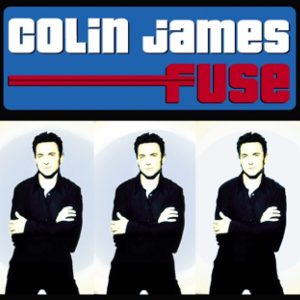 Colin James
Colin James
Fuse
Your boy Colin James just can’t seem to make up his mind these days. First he hopped on the retro-swing bandwagon with that Little Big Band album. Then he went back to the deep blues of his youth with on Bad Habits and National Steel. Then he U-turned with another Little Big Band outing. Now comes a disc that should leave everyone even more confused — Fuse, a slick set of studio soul-pop and commercial blues-rockers that pulls another 180 from his recent work and returns to the ultra-commercial sound of his earliest albums. It’s a curious effort — individually, each of the songs stands up quite well, from the sweet-soul ballads like Mystery to Me and Get Carried Away to the Black Crowesy rocker Getting Higher and funky guitar workouts like Get to the Bottom and Hide. But taken as a whole, Fuse fails to connect — the production is too slick, the grooves too artificial, the tunes too commercially predictable and generic to be memorable. I don’t know what Colin’s plan is — and frankly, you get the sense he doesn’t either — but Fuse doesn’t have enough power to light your fire.


